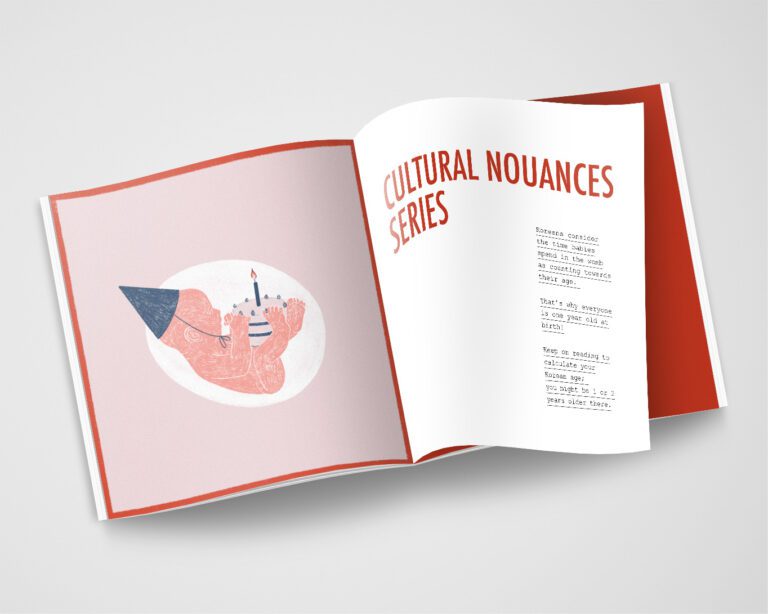
Cultural Nuances Series
The Cultural Nuances Series is a personal illustration & writing project about the little differences across various cultures.
Personally fascinated, this series explain unique features of some of the places Mireia lived in.

South Korea – Greetings
밥 먹었어요? “bap meogeosseoyo”
“Have you eaten rice?”
This is a common way to ask “how are you?” in Korea.
If you are doing fine, you will answer “Yes, I have eaten” even if you actually haven’t!
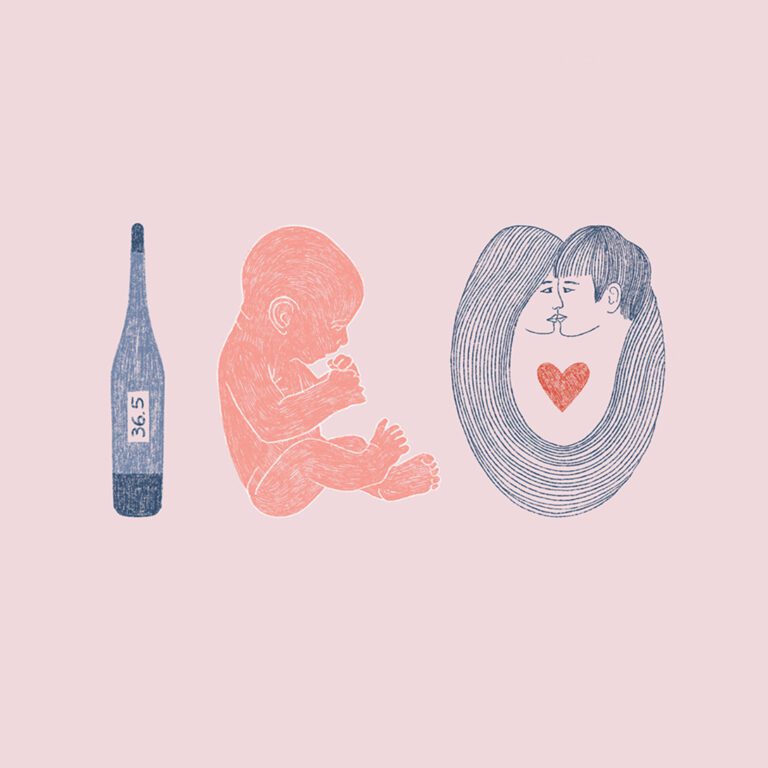
South Korea – 100
백일 “Baek-il” is the birth celebration held on the 100th day after a baby is born.
Infant death rates used to be very high before that period of time. Therefore, babies were kept indoors until the 100th day, when it was considered safe enough for the child and the mother to come out of the house.
Probably related to this concept of overcoming the ups and downs, couples celebrate their relationship every 100 days.
100, 200, 300, 500 & 1000
Don’t worry if you aren’t great at remembering dates, there are many apps that will count the days for you!
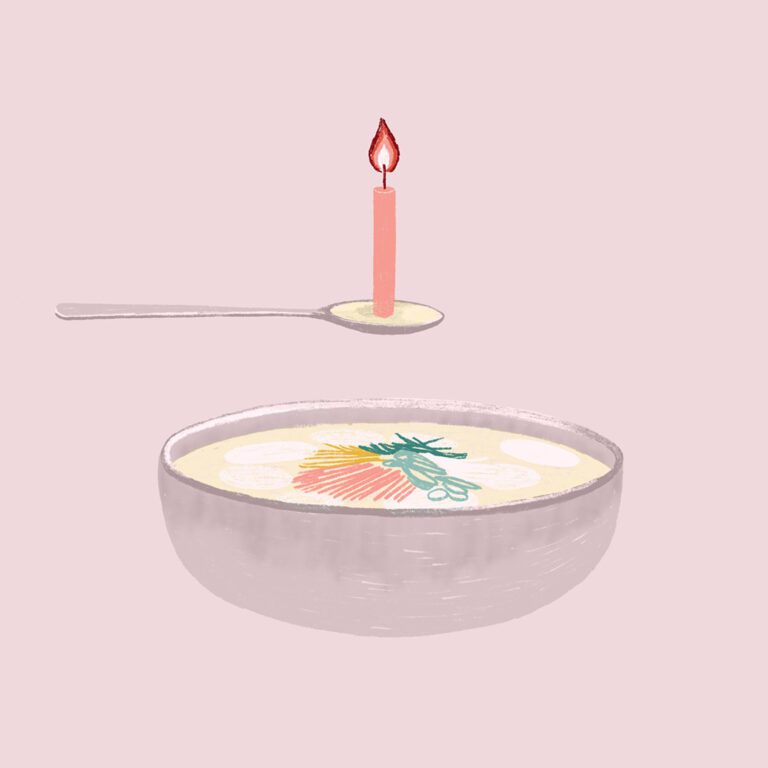

South Korea – Birthday
On 설랄 “Seollal”, the Lunar New Year, the Korean birthday called 음력 생일 “Eumnyeok Saeng-il” is celebrated.
On this day, all members of the family turn a year older at the same time by eating a bowl of 떡국 “Tteokguk” soup.
During the Japanese Occupation, the celebration of the Korean New year, 설랄 “Seollal”, was prohibited.
It was reinstalled after the national liberation day, called 광복절 “Gwangbokjeol”, literally “the day the light returned”
15th August 1945.
When is 설랄 “Seollal”?
Korean New Year generally occurs in January or February on the second new moon after the winter solstice.
This three-day holiday is one of the most important Korean celebrations and it’s typically spent with the family.
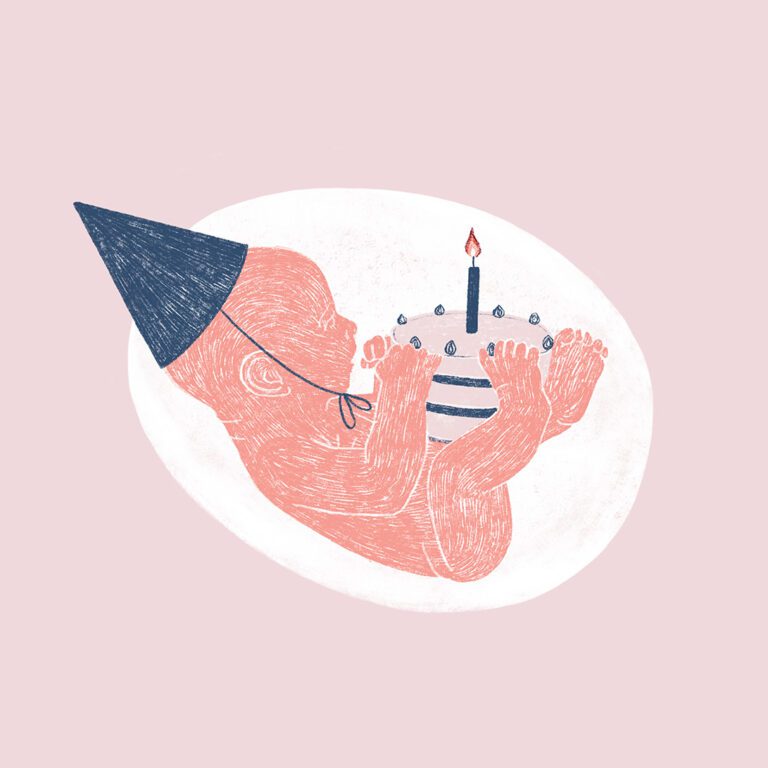
South Korea – Birthday
How old are you in Korea?
Koreans make a difference between Korean age and International Age.
Hence, you aren’t considered older there.
But, if you ask someone’s age, be aware that they are telling you their Korean age;
(Current year-Birth year) + 1
How old would I be in Korea?
In my case, I was born on the 29th December.
In South Korea, I would have been 1 year old at birth and then, I would have turned 2 years old on Seollal, just after a few days of being born.

South Korea – Red Ink
Red ink was used in the past to write deceased people’s names on the family register in Korea.
That’s why, still nowadays, names are never written in red ink. It’s somehow considered as wishing harm or even death to them.

South Korea – Heart
Since a while ago, is very popular to pose for pictures showing the “Finger Heart”
The actress Kim Hye-soo may have started this trend back in 2010.

Japan – Punctuation
There are no question marks in the japanese language;
The suffix “-ka” is used at the end of a question
Interrogative sentences are ended with the japanese full stop: a small circle.
Also, commas face the other side in japanese.
*Note that some Mangas and informal Japanese do use question marks.
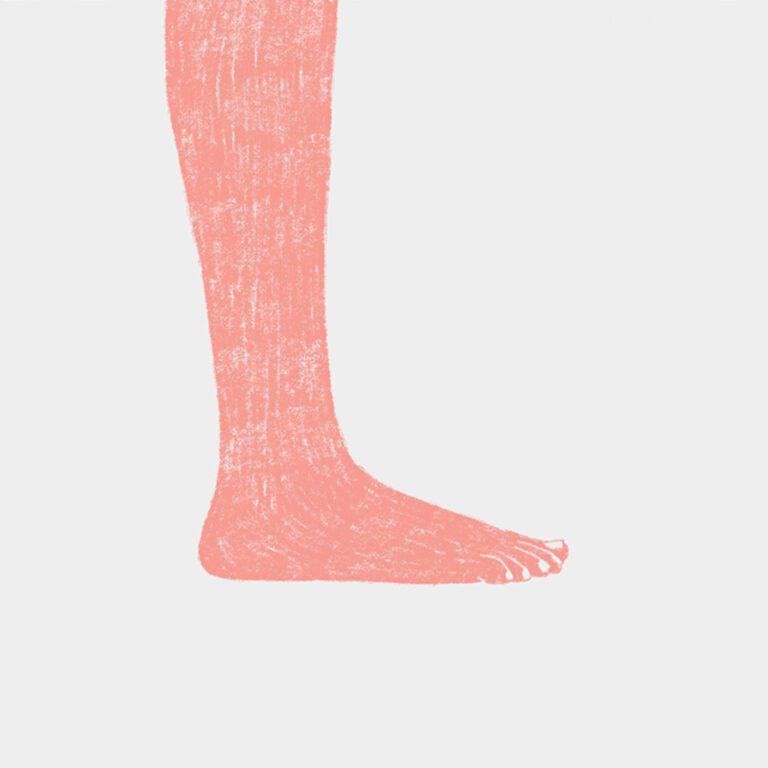
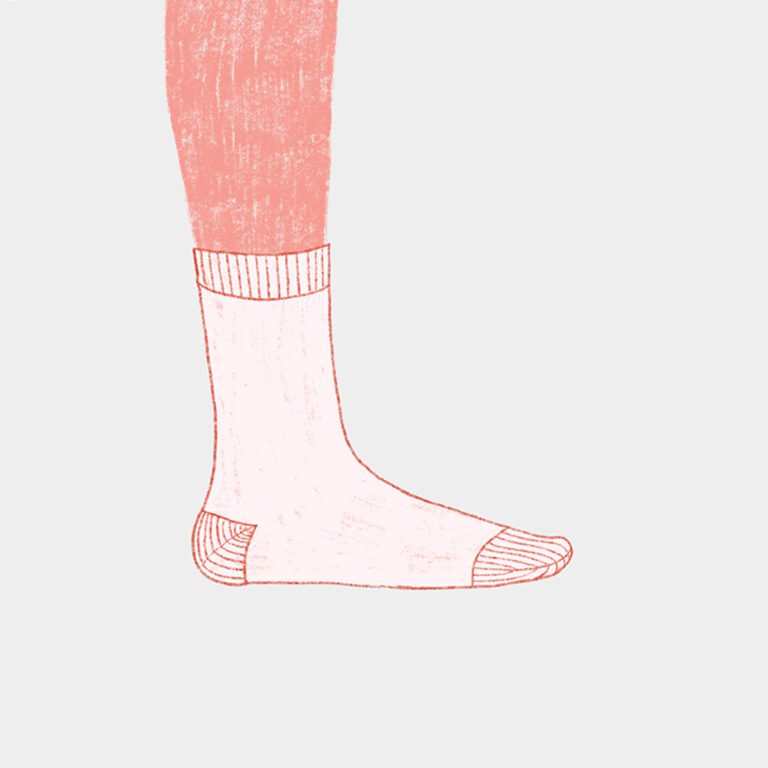

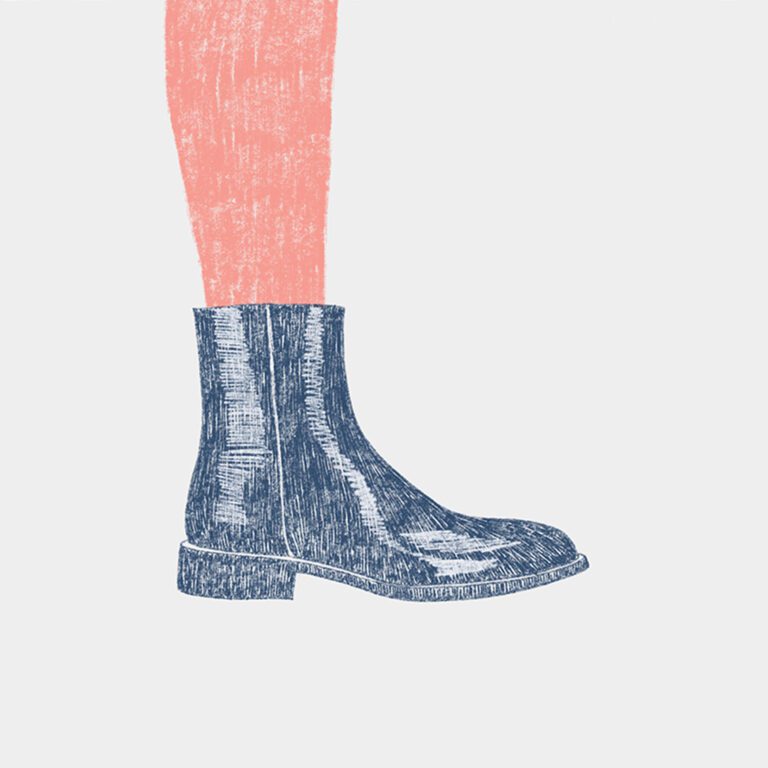
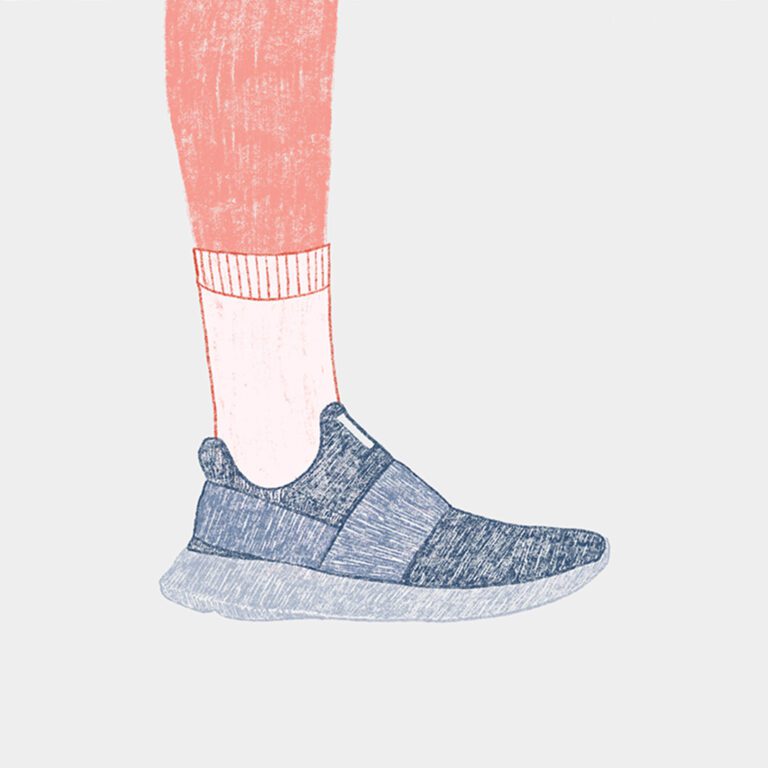
Japan – Shoe Policy I
If you are planning on visiting japan, this is my advice: Bring shoes that are easy to put on and take off!
Ideally choose a no-lace slip-on pair of sneakers or zip-up boots. You will now see why.
When entering capsule hotels, hostels, traditional restaurants with tatami flooring, onsens and other buldings like schools or even most offices, you will have to remove your shoes.
Usually, there will be special lockers to store your shoes.
Remember to wear nice socks! In Japan you can buy Kawaii “cute” socks everywhere.
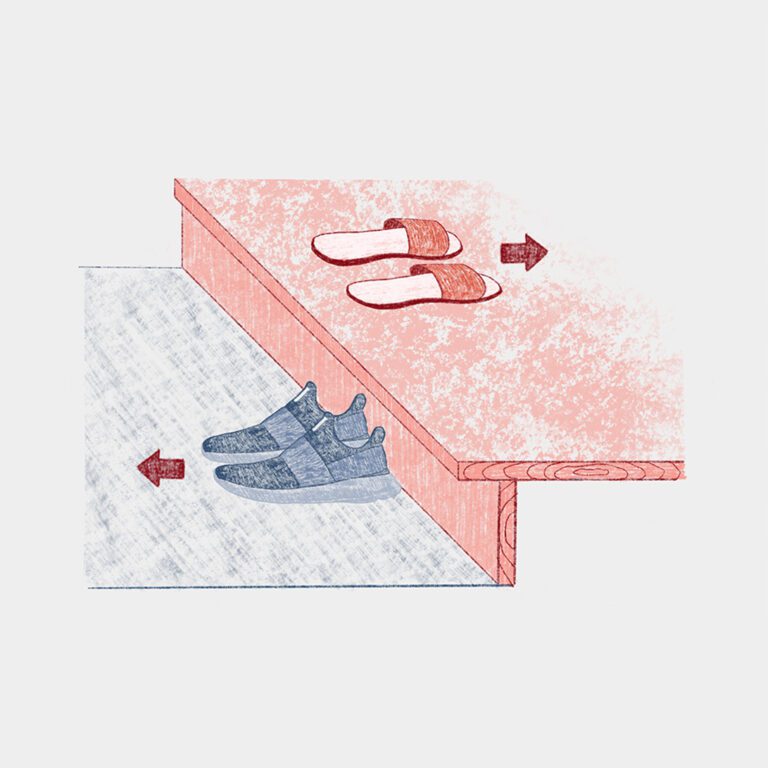
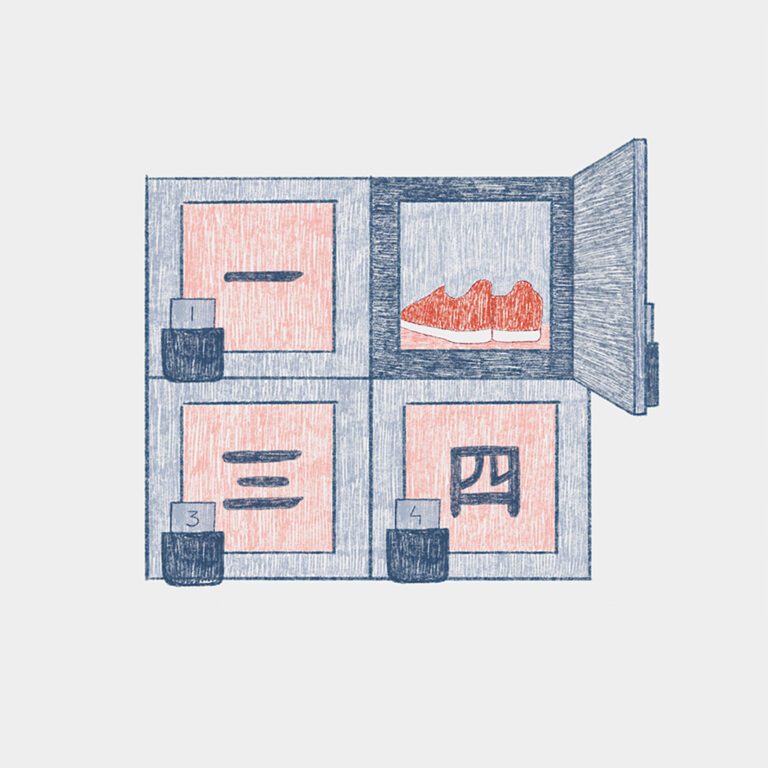
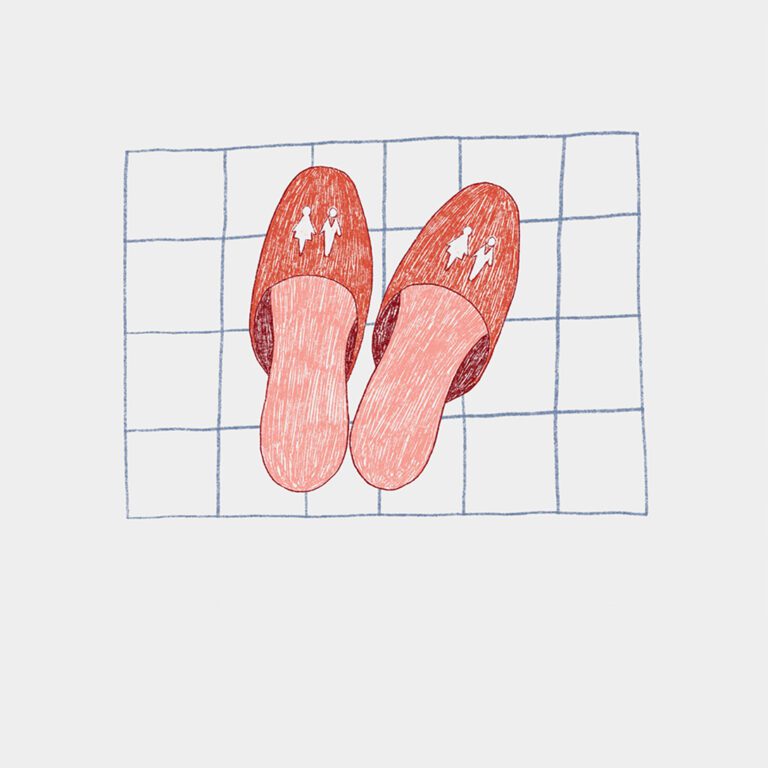
Japan – Shoe Policy II
Note that everytime you see a “Genkan” ~level difference when entering a space~ you are expected to take off your shoes.
This area is supposed to stop the dirt entering the house. You will encounter some home slippers to put on in exchange for your shoes.
You will have to wear them to enter the bathroom, leaving home slippers outside.
Remember to exchange them again before returning to the common room, it’s very impolite to use them outside the bathroom area!
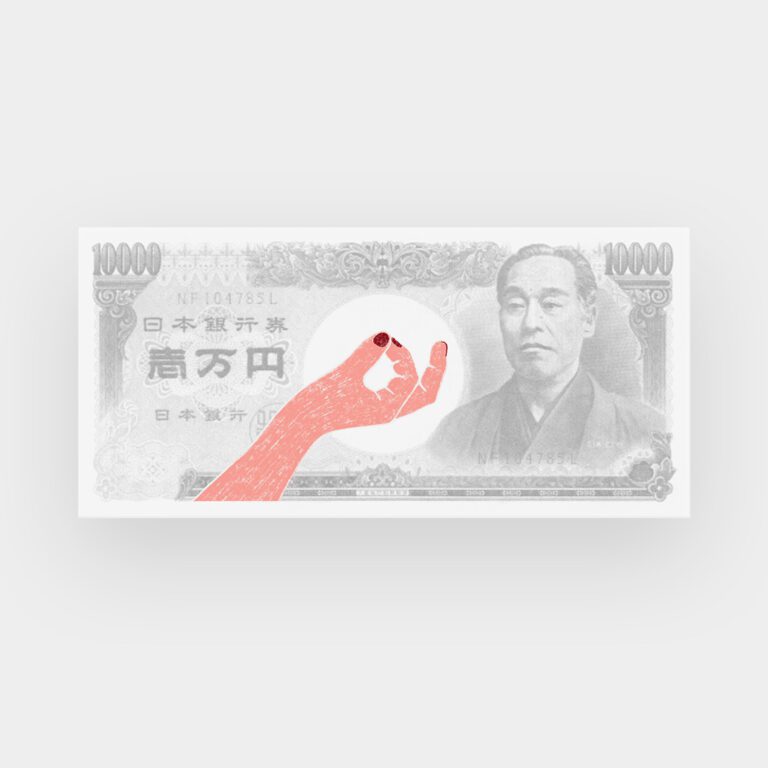
Japan – Price
In Japan, this hand gesture means ‘how much is it?’
Also note that you shouldn’t tip in Japan or Korea, sometimes it can even be considered rude or insulting!
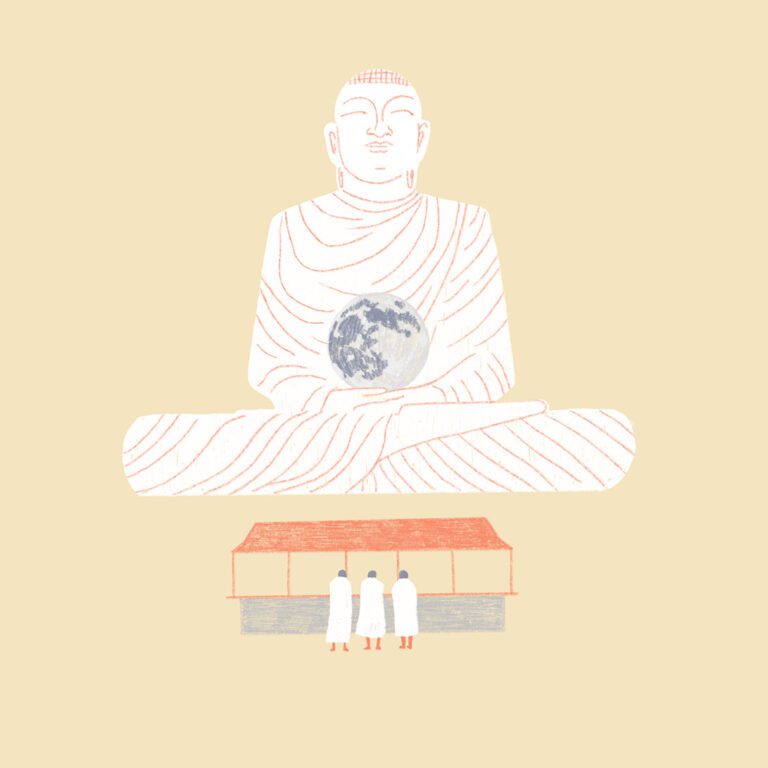
Sri Lanka – Poya
Every full moon day is a national holiday in Sri Lanka.It’s known as Poya, meaning ‘fast day’ in Sinhala language.
Many Buddhists visit one of the temples on those days, wearing white clothes.
The sale of alcohol and meat is forbidden during Poya days.